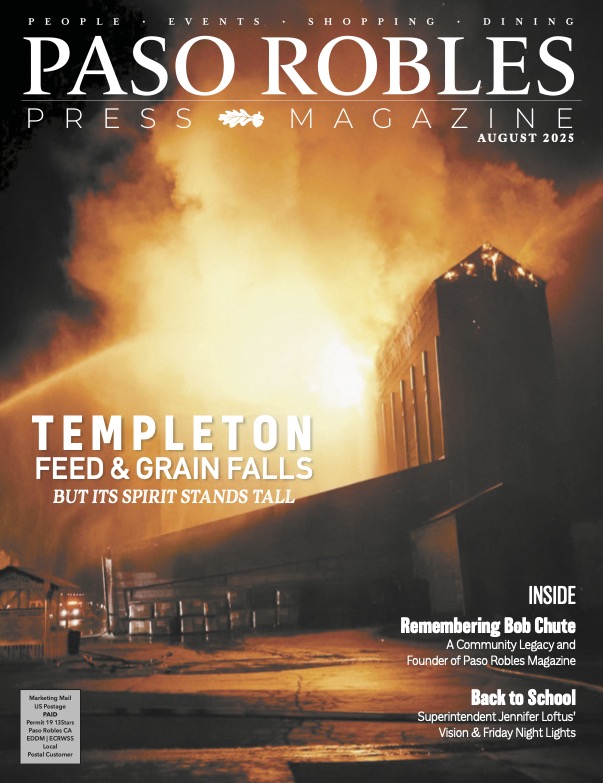Board also hears budget update, housing plan in return to live meetings
SAN LUIS OBISPO COUNTY — The San Luis Obispo County Board of Supervisors met in a regular meeting on March 1. This was the first meeting to occur live after a month of virtual meetings.
The board began with the Consent Agenda (Items 1-14), with District 5 Supervisor Debbie Arnold pulling Item 6, which had to do with a $1,023,400 payout to UCLA Healthcare to provide a county mental health client in need of special service. Arnold wanted to know what made the service necessary given the amount.
County Behavioral Health Director Anne Robin spoke and said this client needed a particular service that was not available locally.
“Sometimes there are no local options,” Robin said. “It was a decision not taken lightly.”
After the discussion, it was decided to put Item 6 to a separate vote. The agenda minus Item 6 passed unanimously, while Item 6 passed with a 4-1 vote, Arnold against.
Next, the board heard Item 15, a resolution commemorating Grand Jury Awareness Month, with District 3 Supervisor Dawn Ortiz-Legg reading the resolution and Nancy Weltz of the California Grand Jurors Association giving a presentation about the role of the Grand Jury in the community. The resolution passed 5-0.
After public comment, the board heard Item 17 concerning the 2022-23 fiscal year budget. Rebecca Campbell, Assistant County Administration Officer, presented an update on the plan.
Campbell state the short-term priorities as homelessness, water resiliency for infrastructure, economic development, and housing. Long-term priorities listed were public safety and roads. Status quo assumptions were also listed. She also noted that the budget draft would be introduced on May 17, with budget sessions June 13-15.
Item 18 was a presentation of the funding plan for $5,346.000 in American Rescue Plan Act Housing and Homeless Projects and the approval of the plan.
The board passed the item by a 5-0 vote, although District 1 Supervisor John Peschong and District 2 Supervisor Bruce Gibson said they wished that cities would have contributed a little more to projects in the plan.
The final item of morning session was the granting of an temporary entertainment license for Spartan Race Inc. for an event in the Santa Margarita area. This item was introduced in the Feb. 15 meeting, but it missed the deadline for informing neighbors at the time. With this problem taken care of for this meeting, the board approved the license by a 5-0 vote.
The final item of the day, and only one in the afternoon session, was Item 21, an appeal of a Planning Commission approval of Minor Use Permit for a cannabis operation in the Huasna Valley Area.
Janis Blattner filed the appeal in June 2021, shortly after the Planning Commission approved the application the operation at White Oak Farms, 10150 Bar BB Lane, Arroyo Grande. She was one of six Huasna Valley residents to speak out against the operation during public comments. The objections to the cannabis operation focused on the water use in a drought area, noise and odors that could come from the operation, and the effect on property values.
There was also a question of whether the well was allowed to use the water for commercial purposes, but county counsel said the easement for the well did not explicitly prohibit that.
Blattner also claimed the well to be used for the operation is on her property. William Buckingham, the applicant for the Minor Use Permit, later claimed that he owns the well, and that it sits on an adjacent property she no longer owns.
In his rebuttal, Buckingham agreed that water was the main issue, and that he believed the projected water use of his operation (1,000 gallons a day) was not that far above the standard home. He also said he was well aware of the potential odor problem, and that they were taking steps to mitigate that.
“I live there,” Buckingham said. “I don’t want to smell it either.”
Compton asked if the operation would be a closed, indoor facility, and Mark Lloyd, who is also part of the White Oaks Farm operation, said they would have state-of-the-art greenhouses with carbon scrubbers and sealed doors to prevent the odor escaping outside.
During board comment, Compton said that while she appreciated the applicants’ efforts to mitigate the odor, she felt that past experience shows that enforcement of the regulations would be a problem, noting the number of calls she would get about illegal grows in the area. Arnold had concerns about Buckingham’s well allegedly being on someone else’s property and said the well was not designed for the heavy use the operation would entail.
Ortiz-Legg, however, noted that the application for the operation had 76 conditions put on it and if they don’t approve that project, that opens the possibility of illegal grows, which are hard to track down and costly to enforce. Peschong said while he is not ignoring the voices in the community, cannabis is now a legal crop, and the applicants have done a good job following the rules. He just wanted to make sure that they could enforce if operational effects go past the property line.
Ortiz-Legg brought the motion to deny the appeal and approve the cannabis operation, with Gibson seconding after proposing some simplifying language in the permit document. The motion passed 3-2 with Compton and Arnold against.
Gibson then adjourned the meeting “in solidarity for the people and government of Ukraine and expressing sincere concern to their well-being.”
The next supervisors’ meeting will be March 15 at 9 a.m. in council chambers. For agenda and video of the meeting, go to slocounty.ca.gov.















